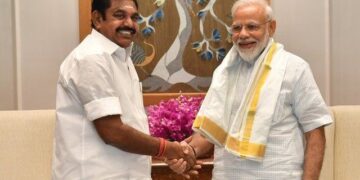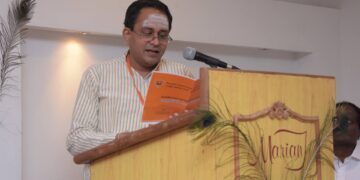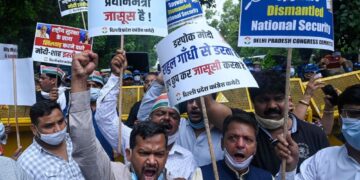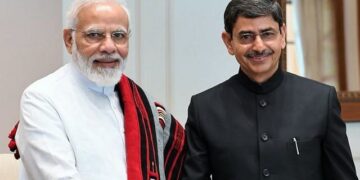 விக்கிலீக்ஸின் நோர்வேஜியன் கேபிள்களில் ஒன்றில் தாம் இலங்கை ஆயுதப்படைகளை எதிர்கொள்ள முடியாமல் தோல்வியடையும் சாத்தியக்கூறுகள் காணப்படுவதாக நோர்வேயிடம் தெரிவித்திருந்ததாக கூறப்படுகிறது. யுத்தம் ஆரம்பமாவதற்கு முன்பதாகவே 2006ம் ஆண்டிலேயே இதனைத் தெரிவித்துள்ளதாக நோர்வே அரசின் ஏனைய நட்பு நாடுகளுடனான தொடர்பாடல்கள் தெரிவிக்கின்றன.
விக்கிலீக்ஸின் நோர்வேஜியன் கேபிள்களில் ஒன்றில் தாம் இலங்கை ஆயுதப்படைகளை எதிர்கொள்ள முடியாமல் தோல்வியடையும் சாத்தியக்கூறுகள் காணப்படுவதாக நோர்வேயிடம் தெரிவித்திருந்ததாக கூறப்படுகிறது. யுத்தம் ஆரம்பமாவதற்கு முன்பதாகவே 2006ம் ஆண்டிலேயே இதனைத் தெரிவித்துள்ளதாக நோர்வே அரசின் ஏனைய நட்பு நாடுகளுடனான தொடர்பாடல்கள் தெரிவிக்கின்றன.
ஆயுதரீதியாகப் புலிகள் பலம் பெற்றிருந்தனர் என்ற காலப்பகுதியிலேயே இந்தக் கருத்து வெளியிடப்பட்டுள்ளது. தவிர,இதே காலப்பகுதியில் புலிகள் இயக்கத்தின் முக்கியஸ்தர்களாகக் கருதப்பட்ட தமிழ்ச்செல்வன், சூசை, பொட்டம்மான் போன்றோர் தமது பெயர்களில் ஐரோப்பிய அமரிக்க நாடுகளிலும் மலேசியாவிலும் சொத்துக்களை வாங்கியிருந்ததாக புலிகள் இயக்கத்தின் மலேசிய முக்கியஸ்தர் ஒருவரின் தகவல்கள் தெரிவிக்கின்றன.











Editorial Island
Of Prabhakaran’s blind plunge
January 11, 2011, 7:14 pm
Propaganda constituted a main prong of the LTTE strategy. It helped the outfit build a bulwark of myths and fear by way of defence. The Tigers subtly used the media to disseminate their propaganda lies and condition people psychologically to believe they were invincible. Until the capture of Kilinochchi, during the Vanni operations, the LTTE propagandists who included some journalists, both local and foreign, NGO activists and politicians, insisted that the Tiger heartland was impregnable and the army would have to beat a retreat nursing a bloodied nose before long. Among those who claimed that the war could not be won by either party were foreign diplomats helping further the LTTE’s interests. However, Prabhakaran had a realistic assessment of his real strength, according to a classified US diplomatic cable exposed by Wikileaks. It reveals, as we reported yesterday, that he informed the Norwegians before the launch of the Vanni offensive that he was not capable of withstanding a military onslaught. Norway intimated this to the Co-Chairs. The cable tallies with our report in 2007 that Prabhakaran had summoned some TNA MPs to Kilinochchi and ordered them to campaign hard and bring international pressure to bear on the government to stop the Vanni operations and he would hold out until such time. That proved to be a terrible miscalculation on his part. The army marched faster than expected!
The question is why Prabhakaran, in spite of being convinced that his outfit was no match for the military, plunged the country back into war. His fate was sealed the day he took a dip in Mavil Aru in 2006, though he thought the government would take the capture of that small reservoir lying down. He became so cocky as to resume the war because he relied on the West to rush to his rescue the way India had done in 1987, when Rajiv Gandhi forced Sri Lanka to stop the war and had him removed to safety. India sent choppers for that rescue mission and Prabhakaran must have expected a fixed wing aircraft to come from a western country in 2009. That may have been the reason why he built some airstrips big enough to take huge planes, in the Vanni. (His tiny aircraft did not need big runways; they could use even a straight road for taking off and landing.) His foreign friends did their damnedest to save him; Hillary Clinton and Robert Blake worked overtime to have the war halted and David Miliband and Bernard Kouchner came ‘running’ here for that purpose. But, Prabhakaran’s plan went awry as the Rajapaksa government withstood foreign pressure and went the whole hog to finish the war.
Why did the US, the EU and Norway let the LTTE resume hostilities even after they were apprised by Norway of Prabhakaran’s assessment of his strength? Did they want him to plunge feet first into war, stew in his own juice and learn a bitter lesson? If so, they need not have tried to scuttle the war when he got into trouble. They were confident that they could intervene to stop the war anytime and they wanted to frighten the Rajapaksa government into submission.
Thus, it may be seen that what really boosted Prabhakaran’s confidence, fuelled his terror project and led to the prolongation of Sri Lanka’s bloody war was the understanding he had with some members of the international community in spite of their much advertised aversion to terrorism. Had they told Prabhakaran, “Chum, you cannot expect us to save you and therefore you had better give up terrorism and agree to a political solution “, he would have listened to them. They did not do so because they wanted the conflict to persist. In other words, they aided and abetted in Prabhakaran’s terrorism as India had done previously. If they had succeeded in giving Prabhakaran a new lease of life in 2009, they would have had much more blood on their dirty hands!